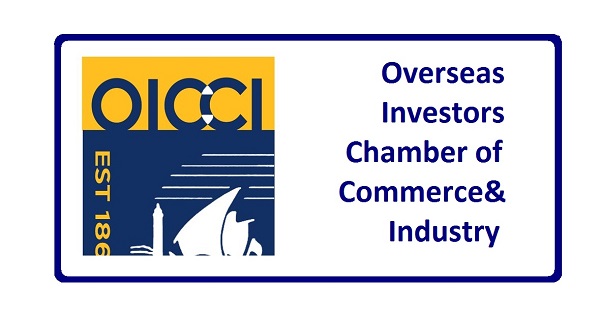The Overseas Investors Chamber of Commerce and Industry (OICCI), the largest body of more than 200 leading foreign investors in Pakistan, has released its biennial Perception and Investment Survey 2025, revealing a cautiously optimistic outlook from foreign investors on Pakistan’s business and investment climate.
The survey shows that 73 percent of OICCI members recommend Pakistan as a viable destination for foreign direct investment (FDI), a notable rise from 61 percent in 2023. This shift reflects improved macroeconomic stability, reduced inflation, declining from 37 percent in mid-2023 to 4 percent by July 2025, and a relatively stable rupee, alongside upgraded international credit ratings.
Other key findings from the survey highlight Pakistan’s improved regional standing on investment viability compared to 2023 versus several peers, including Bangladesh, Vietnam, and the Philippines. Parent company interest has increased, as 35 percent of respondents reported that their headquarters are now considering Pakistan a priority destination for new FDI, compared to 24 percent in 2023.
Commenting on the OICCI Perception Survey 2025, OICCI President Yousaf Hussain stated: “The notable upward shift in investor sentiment demonstrates that economic stability and policy coordination are beginning to deliver results. Initiatives like the SIFC have provided a structured mechanism for investment facilitation and inter-governmental alignment. Going forward, deeper private-sector inclusion and continued reforms in taxation and regulatory efficiency will be key to sustaining this momentum.”
Investor perception of business risk has shifted favourably, moving from a predominantly high-risk to a medium-risk outlook, reflecting improved macroeconomic management and relative stability. However, the findings also indicate that structural bottlenecks continue to constrain Pakistan’s investment potential. Among the most critical concerns, federal–provincial coordination received negative feedback from 57 percent of respondents.
According to the survey, 96 percent of respondents reported higher energy costs, 95 percent faced increased wage expenses, and 91 percent cited higher domestic raw material costs. Over 80 percent expressed concern over delayed tax refunds, which in most cases take more than two years to process. Furthermore, over half of respondents indicated that commercial disputes take over five years to resolve, highlighting the need for judicial reform and more efficient dispute resolution.
Members’ perceptions of Pakistan’s economic outlook have improved noticeably since 2023. When asked about their sector-specific expectations for the next two to three years, 58 percent of respondents now foresee global economic growth, a significant rise from 40 percent in the previous survey. This improvement mirrors gains in key macroeconomic indicators, including greater inflation stability, exchange rate management, and stronger capital market performance.
OICCI Members also recommended enhancing Pakistan’s digital and regulatory landscape, supported by stronger human capital and a comprehensive, sector-focused investment policy. They emphasized developing non-IT industrial capacity to diversify growth.
Strengthening Pakistan’s global image was also seen as vital to attracting long-term FDI.
On global perception, 82 percent of respondents noted that negative international coverage continues to influence investment decisions, highlighting the need for a proactive communications strategy to project Pakistan’s economic recovery and reform progress at global forums.
The survey’s recommendations call for broadening the tax base, ensuring policy consistency, strengthening coordination between federal and provincial governments, and enhancing intellectual property rights enforcement to sustain investor confidence and attract long-term FDI.
Foreign investors identified IT and digital services, renewable energy, agriculture, pharmaceuticals, and export-oriented manufacturing as the most promising sectors for future FDI. However, operational constraints persist, including a rising tax burden, policy inconsistency, high energy costs, and issues with contract enforcement, all of which continue to impact competitiveness.
In conclusion, CEO and Secretary General OICCI M. Abdul Aleem added: “While investor confidence has improved, the survey also highlights critical areas needing immediate attention, particularly high business costs, complex taxation, and delays in contract enforcement. OICCI members recommend harmonizing tax policies, simplifying regulations, and enhancing institutional capacity to translate optimism into concrete FDI inflows.”
The OICCI Perception and Investment Survey 2025’s findings highlight that although ongoing reforms have helped stabilize the economy, Pakistan’s ability to translate this improved sentiment into sustained investment will depend on ensuring their consistent execution and long-term continuity. More than half of the OICCI members participated in the OICCI Perception and Investment Survey 2025.

